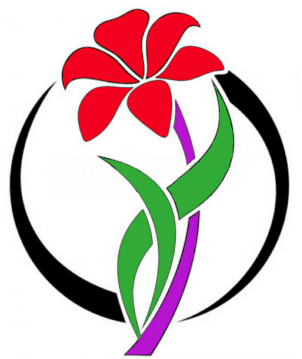The Illusion of Democracy?
Of the people, by the people, for the people? Researchers at Northwestern and Princeton question the impact -- and even the existence -- of populism as a force in modern U.S. politics.
UncommonJournalism@gmail.comUNJournalism
The argument presented by Martin Gilens and Benjamin Page, the authors of a new paper set to be published in the fall 2014 edition of Perspectives on Politics, is straight-forward: In the United States today, C. Wright Mills’ "The Power Elite" may prove a more accurate explanation of what influences public policy than Tocqueville’s "Democracy in America."
In “Testing Theories of American Politics: Elites, Interest Groups and Average Citizens,” Gilens, of Princeton University, and Page, of Northwestern University, examine four theoretical “traditions” -- majoritarian electoral democracy, economic elite domination, majoritarian pluralism and biased pluralism -- and the sway of ordinary citizens, interests groups and economic powerhouses on public policy.
“A great deal of empirical research speaks to the policy influence of one or another set of actors, but until recently it has not been possible to test these contrasting theoretical predictions against each other within a single statistical model,” the paper reads.
Using a data set containing key variable measures for more than 1,700 policy issues, the authors of the paper said the results “provide substantial support” for economic elite domination and biased pluralism theories -- leaving the long-held, and to some long-cherished, theories of majoritarian pluralism and majoritarian electoral democracy nearly out of the political equation altogether.
The Methodology
For the study, Gilens and Page looked at four actors; the median U.S. voter as an individual, economic elites, mass-based organizations and business-oriented interest groups and industries. Defining majoritarian pluralism as a system “in which the interests of all citizens are more or less equally represented,” the findings from the paper clearly vouch for the antithesis -- biased pluralism, “in which corporations, business associations and professional groups predominate” -- as the more fitting description of contemporary U.S. politics.
For the study, 1,779 public policy cases -- stemming from national surveys collected between 1981 and 2002 -- were used to measure the influence of popular opinion on public policy. “The included policies are not restricted to the narrow Washington ‘policy agenda,’” the paper reads. “At the same time -- since they were seen as worth asking poll questions about -- they tend to concern matters of relatively high salience, which is plausible that average citizens may have real opinions and may exert some political influence.”
Using quadratic logistic regression techniques based on original survey data, researchers then estimated the opinions of poor (bottom 10 percentile), middle-income (50th percentile) and affluent (top 10 percentile) respondents. Responses from middle income respondents were used as proxies for the majoritarian electoral democracy theory, while responses from affluent survey-takers were used as proxies for the economic elite domination theory.
To meter the impact of biased pluralism in the political arena, researchers used a net interest group alignment measure, with the policy stances of interest groups listed in Fortune’s “Power 25” annual rankings serving as proxies.
“For each of the 1,779 instances of proposed policy change, Gilens and his assistants drew upon multiple sources to code all engaged interest groups as ‘strongly favorable,’ ‘somewhat favorable,’ ‘somewhat unfavorable,’ or ‘strongly unfavorable’ to the change,“ the paper reads. “He then combined the numbers of groups on each side of a given issue, weighting ‘somewhat’ favorable or somewhat unfavorable positions at half the magnitude of ‘strongly’ favorable or strongly unfavorable positions.”
To draw distinctions between net group interest alignments, researchers then assessed business and professional groups separately from other mass-based interest groups, thus pitting groups like the American Hospital Association, oil companies and the National Federation of Independent Business up against organizations like the National Rifle Association, the AARP and United Auto Workers.
For the project, the dependent variable would be whether or not the policy changes preferred by each income percentile or organization type were adopted within four years of the survey questions being circulated.
 |
| According to "Testing Theories of American Politics," the political sway of the wealthiest 10 percent of U.S. citizens far outweighs the ability of median-income earners to influence public policy. |
The Results
The findings are unmistakable; per Gilens’ and Page’s report, proposed policy changes with strong support from economic elites are much likelier to be adopted than policy changes with strong support from median-income earners. Similarly, the paper found business and professional interest groups to be likelier to see their requested policy changes take place than other mass-based interest organizations.
“Multivariate analysis indicates that economic elites and organized groups representing business interests have substantial independent impacts on U.S. government policy,“ the authors of the paper state, “while average citizens and mass-based interest groups have little or no independent influence.”
However, the public policy stance of median-income Americans may not be all that different from the public policy stances of the upper echelon. According to the paper, the public policy preferences of average Americans registered a .78 correlation with the public policy preferences of the economic elites.
“Rather often,” the paper reads, “average citizens and affluent citizens, our proxy for economic elites, want the same things.”
Conversely, the stances of interest groups largely differed from the public policy stances of most median-income citizens. “Taking all interest groups together, the index of net interest group alignment correlates only a non-significant .04 with average citizens’ preferences,” the paper reads. “This casts grave doubt on David Truman’s and others’ argument that organized interest groups tend to do a good job of representing the population as a whole.”
Even “mass-based” interest group stances do not seem to vibe with the political leanings of middle-income Americans, with non-business organizations of the like scoring a statistically significant, although “very modest,” .12 correlation with the political stances of average Americans. By comparison, business-oriented interest groups fared even worse, posting a -.10 correlation with median income citizen ideals.
Mass-based and business interests groups did not appear to sync up with the political stances of economic elites, either -- a finding researchers considered surprising.
“[This] may reflect profit-making motives among business as contrasted with broader ideological views among elite individuals,” the paper said. “For example, economic elites tend to prefer lower levels of government spending on practically everything, while business groups and specific industries frequently lobby for spending in areas from which they stand to gain.”
As a result of their findings, the authors suggests that modern state of U.S. “democracy” is best described as an amalgamation of competing economic elitist and organized business-based interests. Meanwhile, the overall impact of “median voters,” researchers said, has dropped to almost zero when considered as an independent public policy factor.
“The chief predictions of pure theories of majoritarian electoral democracy can be decisively rejected,” the authors of the paper declare. “Not only do ordinary citizens not have uniquely substantial power over policy decisions; they have little or no independent influence on policy at all.”
The ‘Death’ of Democracy?
In examining 1,779 policy cases, researchers found that when narrow public majorities rallied for policy changes, those changes came about roughly 30 percent of the time. However, even with gargantuan pro-change majorities -- with as many as four-fifths of the general public favoring policy
shifts -- the American majority only saw those changes come about 43 percent of the time. According to Gilens, those percentages simply reflect how often economic elites or business interests sync up with the policy preferences of the general public.
With their data demonstrating the massive clout of business-interests and economic heavyweights, do the researchers themselves believe that America can no longer be considered a nation where “majority rule” is still a reality?
Despite media outlets like BBC, U.S. News and Slate explicitly using the term in write-ups on his report, Gilens said it's a bit too early to describe contemporary U.S. politics as as an oligarchical system.
“‘Oligarchy’ brings to mind this image of a very small number of extremely wealthy individuals pulling the strings,’ Gilens told Uncommon Journalism. “I don’t think that’s the situation in America today. We have a somewhat larger group of people who have the interests and the means to influence what our government does and we have a very poorly functioning democracy, in terms of the degree to which that ability to shape policy outcomes is widespread, but I don't think it's so narrowly constrained as to justify the term."
However, he said the outcomes of his study remain concerning for ordinary citizens.
“The situation for working Americans is impacted in very fundamental ways by the political decisions that they have little influence over,” Gilens said. “We’ve seen, for example, how, over the last two decades, the middle class has stagnated economically, and we’ve seen how the growth in our economy has more and more been narrowly confined to the people at the top…these are things that really affect people’s lives.”
Furthermore, he said his findings speak to the “very fundamental nature” of the type of society and government the United States promotes. “To me, living in a society where the majority of citizens have such little ability to shape what their government does, it’s extremely distressing," Gilens said. “And I don’t think it’s what most Americans believe America should be, and maybe not even what many of them think America is.”
While his findings demonstrate noticeable overlap between the public policy wants of average Americans and the affluent, Gilens does not believe the economic elite can be considered a “voice” for the middle class.
“I think there’s a distinction between getting what you want because some powerful other group or individual happens to share your preferences, and getting what you want because you actually have a say in the political system,” Gilens said. “Sure, you could say it would be even worse if there was less overlap between what middle class Americans and what economic elites prefer…but it’s certainly not the kind of system that I think most people think about when they think about what it means to be a democracy.”
Middle class Americans, he said, shouldn’t have to depend on the agreement of the “powerful other” in order to see their political needs and wants addressed by government. However, with economic inequality increasing overall over the last few decades, Gilens said it is unlikely that “economic elite domination” will be supplanted as the nation’s primary political model anytime soon.
Nonetheless, he believes there are ways for the middle class to address the issue.
“On the other hand, to the extent that both average Americans become concerned enough to really work for reform, and engage onto the issue of who has say over government policymaking, and to the extent that middle class Americans can find allies among the well to do,” Gilens concluded “one can imagine the situation would improve.”
Referencing the recent outcome of McCutcheon v. Federal Election Commission, a Supreme Court case that did away with aggregate limits on individual election cycle contributions, Gilens said campaign finance reform could be a pivotal first step towards leveling the political playing field.
“There are proposals for ways of sort of reforming campaign finance laws, consistent with recent Supreme Court decisions, that could fundamentally alter the role of money in the political system,” Gilens said. “And that, I think, is the change that will be required to bring about a whole range of policy changes that middle income Americans might prefer to see.”
Uncommon Journalism, 2014.





Comments
Post a Comment